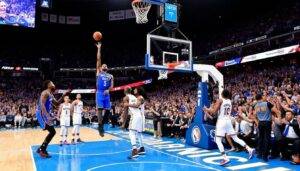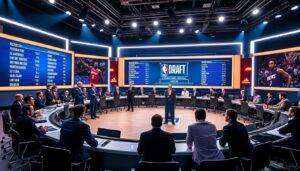Marc J. Spears reveals that the NBA may pursue expansion opportunities as early as this summer

The NBA is stirring the pot once again with fresh talks of expansion, potentially reshaping the league's landscape as early as this summer. Inside sources, notably ESPN's Marc J. Spears, reveal a league torn between lucrative international ventures and the traditional economics of ownership shares. While Commissioner Adam Silver's optimism about expansion reflects readiness, the tension between financial incentives and stakeholder interests remains palpable. This development promises to stir debates across fan bases, cities, and corporate sponsors alike, especially as the league balances growth in markets like Europe and China with the essential question: is the time right to add new franchises? Let's break down what’s on the table and what hurdles lie ahead.
NBA Expansion 2025: What Marc J. Spears Has Uncovered
Marc J. Spears, a trusted NBA insider, recently disclosed that the NBA is leaning toward expansion this summer, but cautioned it’s far from an automatic yes. During an episode of NBA Today, Spears shared inside information from a “high-level NBA source” who highlighted the league’s active consideration of adding teams. However, the decision hinges on much more than just the desire for growth.
The league is enjoying robust success globally—NBA Africa is attracting record attendance, and ventures into China continue to generate significant revenue. Meanwhile, Europe stands on the brink of a transformative NBA presence as part of this blossoming global footprint. The $76 billion media rights deal kicking off with the 2025-26 season provides unprecedented financial security, potentially supporting expansion projects down the road.
- Expansion talk could yield up to 32 teams in the league, a jump from the current 30.
- Plans suggest a timeline no sooner than the 2027-28 season for new franchises to debut on court.
- Predominant candidates for expansion include vibrant cities such as Seattle and Las Vegas, both with eager fan bases.
Financial Battleground: The Cost of Adding New NBA Teams
The sticking point is straightforward—money. Expansion means slicing the pie thinner. Ownership stakes currently divided among 30 teams would dilute, which is unwelcome to many entrenched owners. Spears pointed out the expected price tag for a new franchise could hover around $6 billion, a monumental buy-in meant to compensate existing clubs.
This conundrum raises sharp questions:
- Is the long-term gain in expanding the league’s footprint worth the immediate revenue dilution per team?
- Will the league's global revenue streams, boosted by contracts with brands like Nike, Adidas, Under Armour, Puma, Reebok, Champion, New Era, Mitchell & Ness, Spalding, and Wilson, be enough to soften the blow?
- Can ownership groups align to make the expansion a unified move rather than fragmented negotiations?
Without owners’ solid buy-in, these prospects could languish despite the league's outward vitality.
Markets Poised for NBA Expansion: Seattle, Las Vegas, and Beyond
The buzz around Seattle's potential return underscores a city with deep NBA roots, previously home to the SuperSonics before their 2008 relocation. With fan passion unwaned and supportive local authority, Seattle stands ready to rejoin the league’s competitive stage.
Las Vegas, on the other hand, offers a fresh market brimming with entertainment synergy and rapidly growing basketball interest. Success in smaller events and a mature infrastructure for major sports events suggest the city could sustain an NBA presence.
- Seattle: Proven fan base, historical connection, local investment interest.
- Las Vegas: Growing market for sports, synergy with entertainment and hospitality industries.
- Mexico City: Surfacing as an unexpected yet viable candidate, strengthening NBA’s international strategy.
What Expansion Means for Players and the Basketball Ecosystem
Expansion isn't just a financial or fan-based issue; it ripples through player development and industry dynamics. New franchises open doors for emerging talents, which is crucial when analyzing the rise of stars like Jayson Tatum and the pathways carved through the NBA Playoffs tournament. Expanding teams would increase draft opportunities, potentially shifting veteran players' salaries and market dynamics as outlined in recent discussions on player earnings.
- More teams create additional roles for rising talents and veterans.
- Potential partnerships, like the NBA/NBPA 2K deal, might see changes in player exposure and branding opportunities.
- Increased competition might boost storytelling and marketing for apparel giants like Nike, Adidas, and Under Armour.
To stay competitive, veteran players, franchises, and apparel partners must watch these developments closely, especially through documented trends on sites tracking salaries and market movements.
Learn more about how the playoffs have shaped NBA stars and the rise of Jayson Tatum for deeper insight into talent trajectories.

